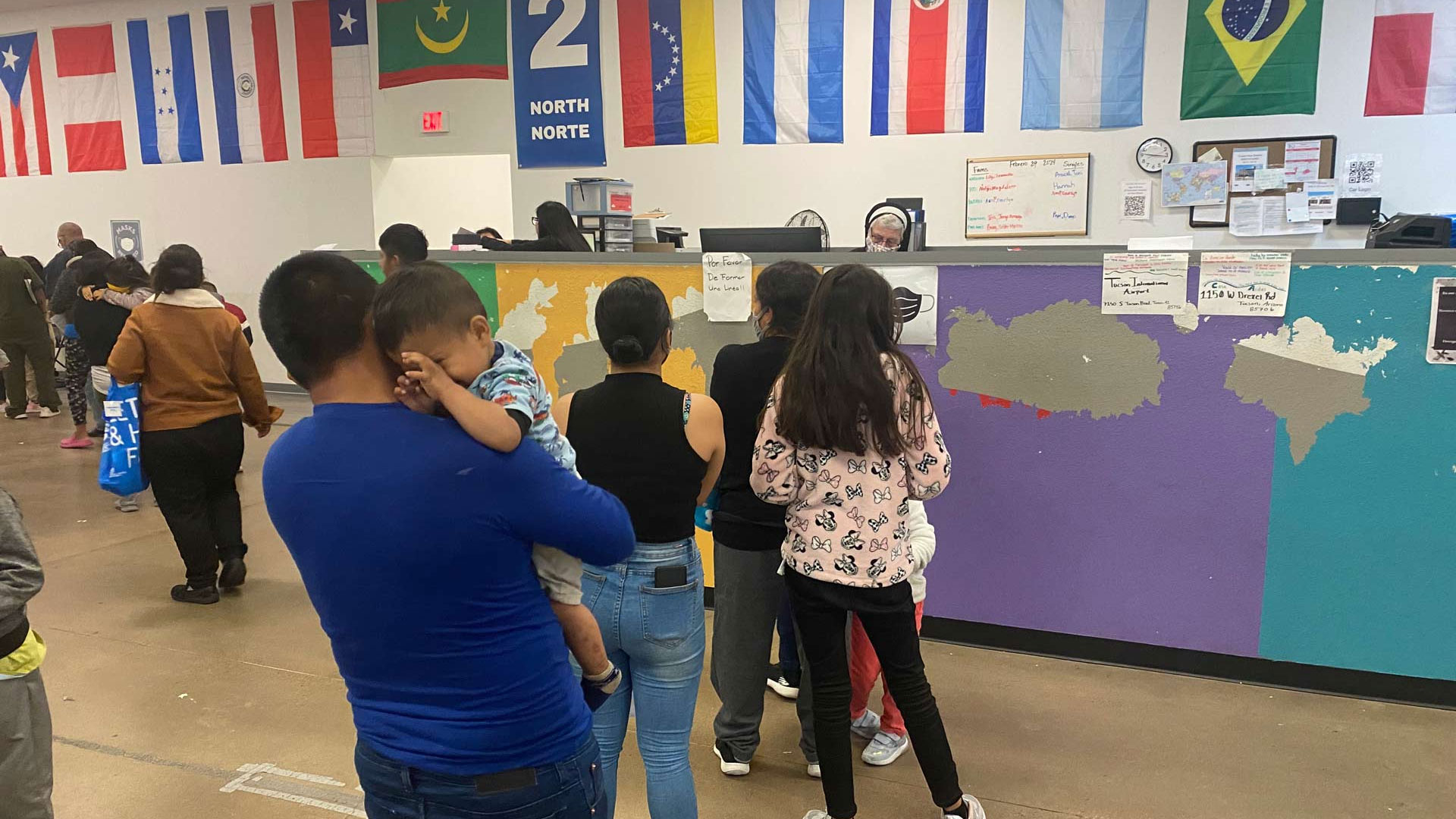 VIEW LARGER People wait for assistance at a shelter that's part of the Casa Alitas program on March 1, 2024.
VIEW LARGER People wait for assistance at a shelter that's part of the Casa Alitas program on March 1, 2024. About a month ago, Ronald and Betty fled warring gangs and widespread violence in their home country of Ecuador. They asked we only use their first names for fear of repercussions.
The couple crossed the US border south of Tucson, asked for asylum, and Border Patrol brought them to Casa Alitas — a shelter and migrant assistance center. The center’s fiduciary, Pima County, received more than $70 million in federal grants since 2019 to run Casa Alitas and related services.
Ronald said that at Casa Alitas they inform them on how to get a flight to where they’re going. They tell them everything they need to know, and most importantly they give them a place to stay and food, which is important because people arrive with nothing after going through so much.
Casa Alitas will have to close down most of its operations if Congress doesn’t pass the Homeland Security funding bill or allocate it by the end of the month. This at a time when US border officials in the Tucson Sector have encountered more than 300-thousand people in the last six months — more than half have passed through Casa Alitas — many of them asylum seekers like Ronald and Betty.
For many at the center, it is the first moment of calm after a long and dangerous journey. More than half of those who’ve come through are families.
People line up for breakfast in the main hall. It’s lined with cots where people leave their things — a small backpack, a red cross blanket, a well-loved stuffed animal.
Diego Piña Lopez, who manages the shelter, says if the migrants can’t come here, border officials will release them on the streets of small border towns, or at the bus station in Tucson — hundreds every day.
“So that’s like 800 people there or half of those could be dropped off in Nogales or a quarter or an eighth could be in Douglas,” he said.
Tucson Mayor Regina Romero doesn’t take it for granted organizations like Casa Alitas will get more funding before there are street releases. She said during Tuesday’s council meeting that Tucson and border communities will need help if that happens.
“None of these towns and cities have the capacity to be able to deal with it alone, so we are in communication with the governor's office to help Arizona cities and towns to deal with the logistics of this,” she said.
It costs a million dollars a week to run Casa Alitas, and their current federal funding runs out at the end of the month. They’ve already begun canceling contracts for services.
Shelter Manager Piña Lopez says that even if Congress approves more funding this week, it could still take time to receive it and ramp services back up. He says this isn’t the first time Casa Alitas has faced a funding cliff, but he’s never seen Congress get this close to the bitter end.
“As much as it can feel bleak, I just keep thinking that none of us have lost hope,” he said. “And I think that’s the one thing we’ve always had that made this possible was the hope and the belief more than anything that we can do this. So I really think we believe in each other. We believe in Tucson. And we believe in this country and what it stands for, from the statue of liberty to the southern border, coast to coast. I think we’re good people, and I know the people coming through Alitas are good and great people.”
For now, Casa Alitas is asking the local community for donations in order to keep offering services to the most vulnerable asylum seekers.

By submitting your comments, you hereby give AZPM the right to post your comments and potentially use them in any other form of media operated by this institution.